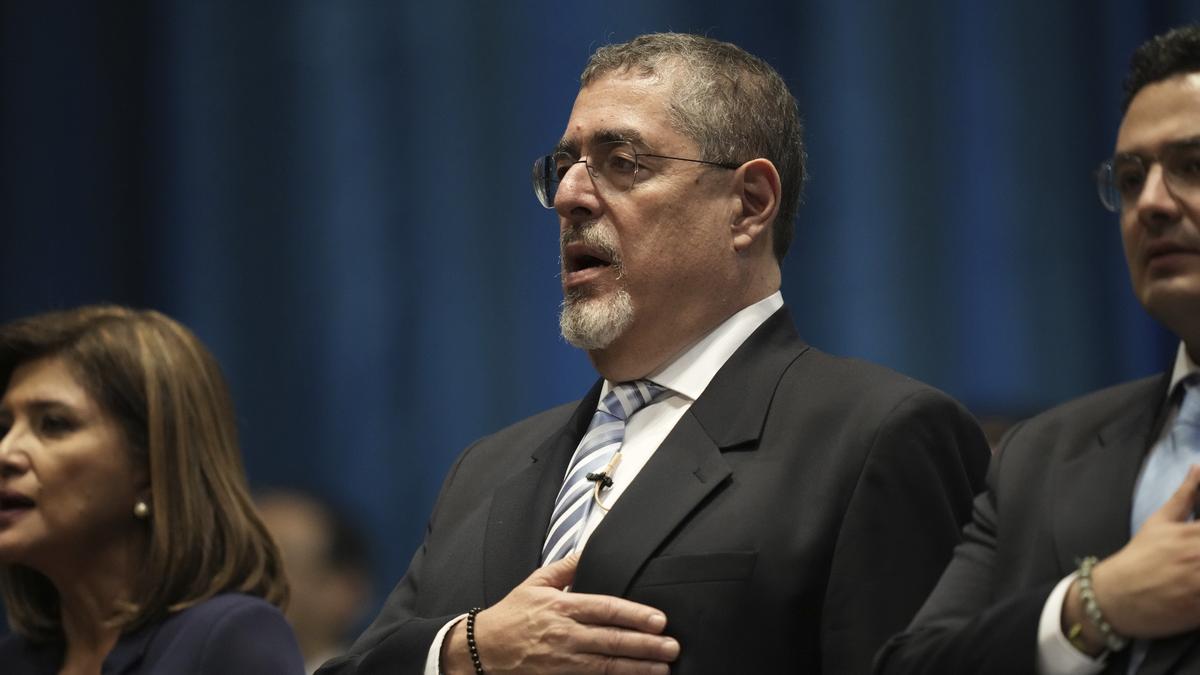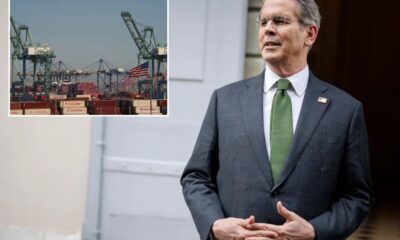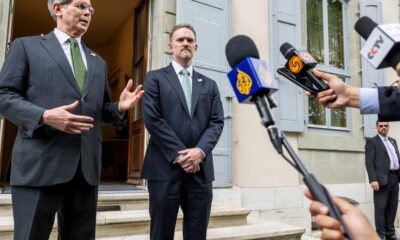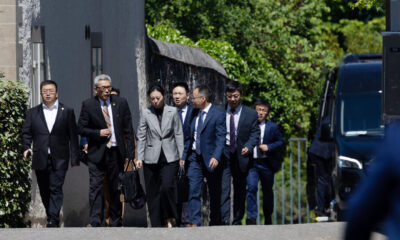Guatemalan President Bernardo Arévalo announced on Wednesday (February 5, 2025) that his country will accept migrants from other countries who are being deported from the United States. This marks the second deportation deal that Secretary of State Marco Rubio has reached during his Central America trip, which has been primarily focused on immigration.
Under the agreement, the deportees will be returned to their home countries at the expense of the United States.
“We have agreed to increase by 40% the number of flights carrying deportees, both of Guatemalan nationality and deportees from other nationalities,” Arévalo stated at a news conference with Rubio.
Previously, Guatemala had been accepting an average of seven to eight flights of its citizens from the U.S. per week, including during the Biden administration. Under President Donald Trump, Guatemala was one of the countries where migrants were returned on U.S. military planes.
El Salvador also announced a similar but broader agreement earlier in the week. Salvadoran President Nayib Bukele stated that his country would accept U.S. deportees of any nationality, including American citizens and legal residents imprisoned for violent crimes.

Both Trump and Rubio acknowledged the legal uncertainties of sending Americans to another country for imprisonment.
“I’m just saying if we had a legal right to do it, I would do it in a heartbeat,” Trump told reporters. Rubio called the offer generous but noted the legal complexities involved.
Immigration has been a priority for the Trump administration, and it has been the main focus of Rubio’s first foreign trip as Secretary of State, covering Panama, El Salvador, Costa Rica, Guatemala, and the Dominican Republic.
The agreements with El Salvador and Guatemala aim to address a key challenge in immigration enforcement, as not all undocumented individuals in the U.S. can be easily repatriated to their home countries.
Guatemala will expand its capacity to receive not only Guatemalans but also migrants from other countries who will then be repatriated. The specifics of the arrangement are still being finalized.
“However, the long-term solution to immigration is to promote development so that people do not feel compelled to leave their countries,” Arévalo emphasized. A high-level Guatemalan delegation will be visiting Washington in the coming weeks, including representatives from the private sector.
Arévalo also announced the establishment of a new border security force to patrol Guatemala’s borders with Honduras and El Salvador. The force, comprised of police and soldiers, will combat transnational crime.
Rubio’s trip has been overshadowed by the dismantling of the U.S. Agency for International Development (USAID), with an order to pull most agency staffers off duty issued late Tuesday.
Following the news conference with Guatemala’s president, Rubio met with U.S. Embassy staff in Guatemala to address concerns about their future. Similar meetings were held in El Salvador, both countries hosting significant USAID missions.
Rubio concluded his visit to Guatemala by touring a local migration facility near an air force base where deportees are processed for reintegration into their communities. With the measures announced by Guatemala’s president, the number of deportees is expected to increase by up to 40%, with support from the U.S. State Department and Department of Homeland Security.
Rubio also received a briefing on Guatemala’s counternarcotics efforts, highlighting the interception of fentanyl precursors in recent months.
Despite the freeze on foreign assistance, Rubio has granted waivers to continue funding for these programs, emphasizing their alignment with U.S. foreign policy and national interests.
Additionally, Rubio discussed border security, combating fentanyl trafficking, and addressing illegal immigration with Mexican Foreign Secretary Juan Ramón de la Fuente in a separate conversation.
Published – February 06, 2025 11:52 pm IST








































